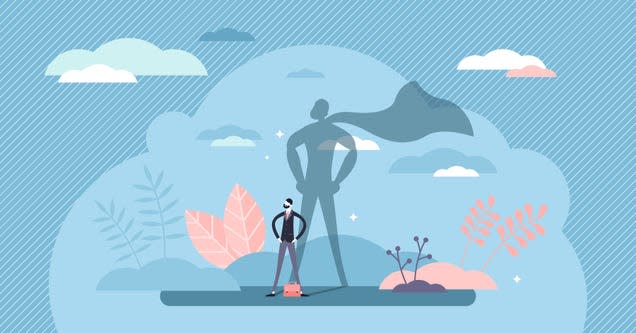What 120 interviews with female leaders can teach us about strengths

Julia Boorstin is CNBC’s senior media & tech correspondent and has been an on-air reporter for the network since 2006. She has been a reporter for Fortune magazine and a contributor to CNN and CNN Headline News. Julia lives in LA with her husband and two sons and is the author of When Women Lead: What They Achieve, Why They Succeed, and How We Can Learn from Them.
Author Q&A: Tools for improving awareness and leveraging your strengths at work
Quartz at Work: How do we know what our natural strengths are?
Boorstin: Everyone has certain traits that we feel good about—whether it’s building teams, listening, negotiating compromises, or asking questions. In each of the over 120 interviews I conducted for my book When Women Lead, I would ask people what their key strength, their superpower, is. Some people answered it quickly before I could even finish the question, while others paused to reflect. But I’ve found that individuals know the one or two things that make them distinct and help them succeed.
Read more
How can we improve our awareness and leverage our strengths?
The more we can think about what we feel really good and confident doing, the more we can hone those strengths. I love conducting interviews and asking questions in part because I think I’m good at it. But I know I can always improve, so I watch journalists I admire and take notes on how they structure interviews and ask follow-up questions. When conducting an interview, I focus on listening to ensure I’m not missing an opportunity to ask a follow-up question or pursue an idea from a different angle. Then I watch my interviews after the fact to see what I can do better next time.
A key way to develop your strengths–and to push yourself to improve—is leveraging ‘after-event reviews,’ a way we can methodically evaluate our own performance. Having a system for reviewing one’s performance takes the emotion out of it. It’s not about whether you failed or succeeded, but understanding what you did well, analyzing your mistakes, and understanding what went wrong that was out of your control. That all helps you figure out what you can do better next time.
Leveraging our strengths can be daunting for some. What’s a good place to start?
To figure out what your natural strengths are—or where you should focus on self-improvement—look to a recent situation where things didn’t go as planned. It can feel painful to review failures–but it’s the best way to figure out where to improve. And on the flip side, think of a time when you felt really proud of yourself–or even when you felt like you were in a flow state and lost track of time. What were you doing when you felt confident? So ‘in the moment’ that you lost track of time? Those moments are the times that can reveal what you’re good at and want to do more of.
Are there tools we should leverage?
Low-tech options are my favorite way to build awareness of your strengths. Don’t underestimate the power of a simple lined notebook or journal: lay out your goals, and if you have specific benchmarks you want to hit, put them into your calendar. There are also some great books to read:
I love GRIT by Angela Duckworth, which explains the importance of building your resilience muscle.
Another favorite is Atomic Habits by James Clear, which describes how to build the right habits into your every day.
A classic for building self-esteem is Daring Greatly by Brene Brown.
If you are looking for something more involved, there is a wealth of classes and cohorts online. Platforms from MasterClass to Kajabi to General Assembly offer online courses. Other companies like MightyNetworks connect communities around shared interests.
More from Quartz
Sign up for Quartz's Newsletter. For the latest news, Facebook, Twitter and Instagram.
